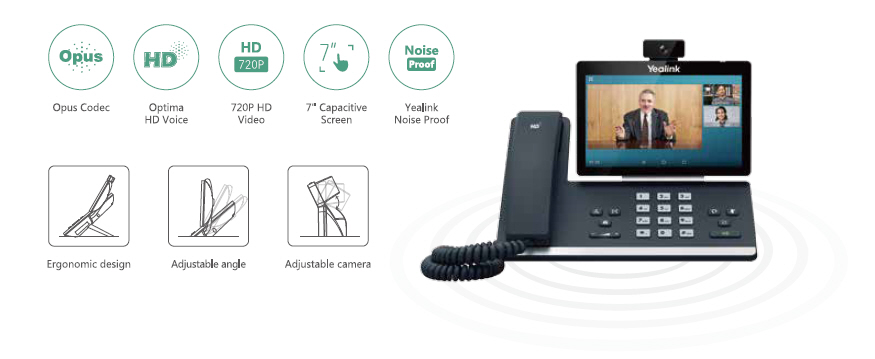Introduction
In the digital age, traditional phone systems are rapidly becoming obsolete. With the rise of communication technology, small businesses are turning toward Voice over Internet Protocol (VoIP) phone systems for their telecommunication needs. A Beginner's Guide to Understanding VoIP Phone Systems for Small Businesses is designed to demystify this innovative technology and help business owners make informed decisions about their communication infrastructure.
VoIP phone systems allow users to make voice calls using the internet instead of traditional telephone lines. This shift not only reduces costs but also enhances flexibility and scalability—two essential factors for small businesses striving to grow in competitive landscapes. This comprehensive guide will explore various aspects of VoIP phone systems, including their benefits, features, installation process, and much more.
What Is a VoIP Phone System?
Understanding the Basics
At its core, a VoIP phone system converts your voice into data packets that are transmitted over the internet. Unlike http://elliottvuxh375.image-perth.org/enhancing-remote-team-collaboration-via-integrated-voip-solutions traditional landline phones that rely on physical copper wires, VoIP operates through broadband internet connections. This fundamental difference gives rise to numerous advantages that small businesses can leverage.

How Does VoIP Work?
So how does it all work? When you speak into a VoIP-enabled device, your voice is digitized and compressed before being sent over the internet to another VoIP device or traditional phone line. Upon reaching its destination, the data is converted back into audio signals. This seamless conversion process enables real-time communication and provides high-quality sound.
Key Components of a VoIP Phone System
To fully grasp the workings of a VoIP phone system, it's important to understand its key components:
- VoIP Phones: These can be hardware devices or softphones (software applications) installed on computers or smartphones. Internet Connection: A reliable high-speed internet connection is essential for optimal performance. VoIP Service Provider: This company manages the network infrastructure required for making calls.
Benefits of Using VoIP Phone Systems for Small Businesses
Cost Efficiency
One of the most enticing benefits of adopting a VoIP phone system is cost savings. Traditional phone services often come with hefty installation fees and long-term contracts. In contrast, many VoIP providers offer flexible pricing models with lower monthly fees.
Scalability and Flexibility
As your business grows, so too do your communication needs. VoIP systems are incredibly scalable; adding new lines or extensions can often be done with just a few clicks in an online interface. This flexibility allows small businesses to adapt quickly without incurring significant additional costs.
Advanced Features
Many VoIP service providers include advanced features like voicemail-to-email transcriptions, call forwarding, and video conferencing at no extra charge. These functionalities can significantly enhance productivity and streamline communication within teams.
Choosing the Right VoIP Phone System for Your Small Business
Assessing Your Needs
Before you dive into selecting a provider, consider your specific requirements:

- How many employees will use the system? What types of calls do you frequently make? Do you need mobile access?
Identifying these needs will help you find a solution tailored to your business.
Evaluating Providers
Not all VoIP service providers are created equal! Look for companies that offer robust customer support, transparent pricing plans, and extensive feature sets. Reading reviews from other small businesses can also provide valuable insights into user experiences.
Top 5 Recommended Providers:
| Provider | Key Features | Pricing Structure | |-----------------|---------------------------------------|---------------------------| | RingCentral | Video conferencing & team messaging | Per user per month | | Nextiva | CRM integration & analytics | Tiered pricing | | Ooma | Mobile app & smart call blocking | Free basic plan available | | Grasshopper | Virtual receptionist | Flat monthly fee | | Vonage | International calling options | Pay-per-use model |
Installation Process for VoIP Phone Systems
Preparing Your Network Infrastructure
Before installing a new system, ensure your current network infrastructure can handle the additional load of voice traffic. Upgrading your router or implementing Quality of Service (QoS) settings may be necessary for optimal performance.
Setting Up Your Devices
Whether you've chosen desk phones or softphones for your team members, setting them up is usually straightforward:
Connect devices to power sources. Configure settings according to your provider’s guidelines. Test each device by making test calls.Training Your Staff
Once everything's set up, it’s crucial to train staff on how to navigate their new system effectively. Many providers offer training resources or webinars that can facilitate this process.
Common Features of Modern VoIP Phone Systems
Call Management Tools
Most reliable VoIP systems come equipped with tools designed for efficient call management:
- Call forwarding Call waiting Caller ID
These features ensure that no important client call goes unanswered!
Integration Capabilities
A seamless integration with other business tools like Customer Relationship Management (CRM) software can streamline workflows significantly. Consider solutions that play well with platforms like Salesforce or HubSpot.

Mobile Accessibility
With remote work becoming more prevalent than ever before, having access to calls via mobile apps is invaluable! Most modern VoIP services provide mobile applications that allow employees to stay connected even when they’re off-site.
Security Considerations When Using VoIP Systems
Understanding Vulnerabilities
While convenience comes with numerous advantages, security should not be overlooked! Common vulnerabilities in VoIP systems include hacking attempts aimed at intercepting calls or accessing sensitive information.
Implementing Security Measures
To safeguard against potential threats:
Use strong passwords. Utilize encryption protocols such as Secure Real-time Transport Protocol (SRTP). Regularly update software and firmware on devices and servers.FAQs About A Beginner's Guide to Understanding VoIP Phone Systems for Small Businesses
What are some common misconceptions about VoIP?
Many people believe that Voice over Internet Protocol requires extensive technical knowledge; however, setup has become increasingly user-friendly over time!
Is there any downtime during installation?
Generally speaking—no! Most providers aim for minimal disruption during transitions from traditional systems to their platforms; however planning ahead is always recommended!
Can I keep my existing number when switching?
Absolutely! Most reputable providers offer Number Portability services allowing customers to retain established contact numbers without hassle.
Will call quality suffer if my internet connection fluctuates?
Yes—call quality directly depends upon bandwidth availability; therefore investing in high-speed connections guarantees superior performance.
Are international calls costly with a VoIP service?
Typically not! Many plans include affordable international rates compared with traditional carriers making global communication feasible without breaking bank accounts!
What happens if there's an internet outage?
In cases of complete outages—service will cease until connectivity resumes; however many companies offer failover options utilizing cellular networks ensuring continuity during emergencies!
Conclusion
In summary, transitioning from conventional telephony solutions toward advanced Voice over Internet Protocol technology represents a strategic move towards modernization—a necessity rather than luxury—for small businesses today seeking efficiency alongside cost-effectiveness! By understanding how these systems operate as well as weighing potential benefits against challenges encountered during implementation phases—owners stand poised not only succeed but thrive amidst evolving market demands!
A Beginner's Guide to Understanding VoIP Phone Systems for Small Businesses serves as an ideal starting point enabling entrepreneurs navigate intricate waters confidently while reaping rewards offered by cutting-edge innovations transforming communications landscape forevermore! Don't hesitate—take action now toward enhancing productivity through embracing powerful yet accessible tools available right at fingertips!